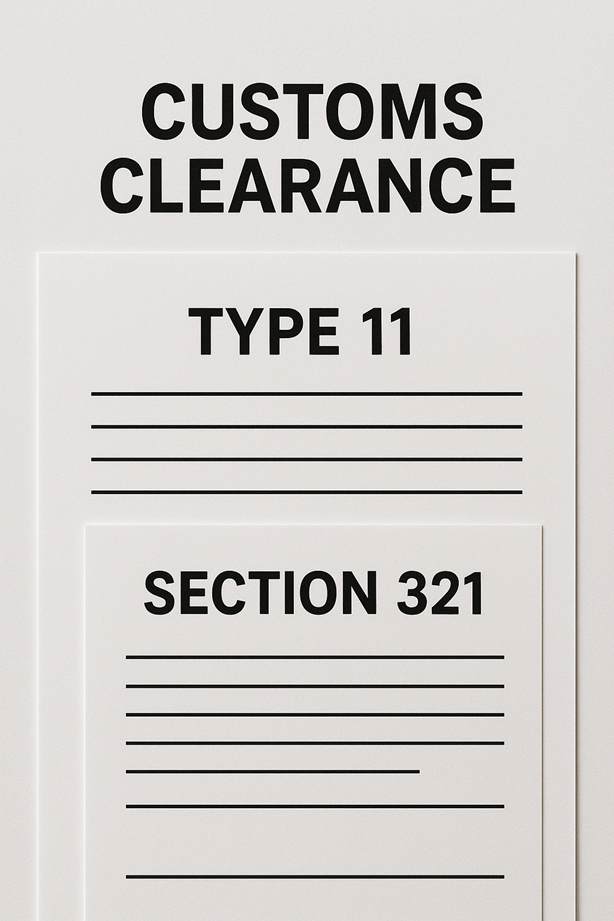Section 321 imports refer to shipments entering the U.S. under a specific customs provision that allowed goods valued under a certain threshold to be admitted duty-free and without taxes. This provision was designed to simplify import processes and support small-value shipments, including many e-commerce orders. As of August 29, 2025, the Section 321 de minimis exemption has been suspended, meaning all imports are now subject to customs checks, duties, and taxes regardless of value or origin.
This change represents a significant shift in U.S. import policy, impacting businesses and consumers who previously benefited from reduced costs on low-value goods. Section 321 imports once accounted for a substantial portion of e-commerce shipments, making this update highly relevant to international sellers and logistics providers. Understanding how Section 321 worked and why it has ended is essential for adapting to the new import landscape.
Understanding Section 321 Imports
Section 321 allows for the duty-free import of low-value shipments, streamlining customs processes for businesses and individuals alike. It sets clear rules for eligibility and provides notable cost and operational benefits for importers meeting its criteria.
What Is Section 321?
Section 321 is a U.S. Customs and Border Protection (CBP) regulation that permits the entry of shipments valued at $800 or less per recipient per day without the payment of duties or taxes. This provision, often called the “de minimis” threshold, applies to imports coming into the United States.
The aim is to simplify customs clearance for low-value packages. Typically, goods qualifying under this section do not require formal customs entry paperwork, reducing delays. Only one shipment per sender per recipient per day can qualify under Section 321, which means multiple small packages shipped from the same supplier to a single person on the same day might not all be exempt.
Eligibility Criteria
To qualify for Section 321, the shipment’s total value must not exceed $800. This includes the cost of the product plus shipping and insurance. The importer and the shipment must meet U.S. CBP standards, including correct documentation.
Only one shipment per day per recipient from one shipper is eligible. Shipments must be for personal or commercial use and not subject to other specific trade restrictions or prohibitions. Certain items, such as alcohol, tobacco, or regulated pharmaceuticals, may not qualify under this rule despite their value.
Benefits for Importers
Section 321 imports reduce or eliminate customs duties and taxes on qualifying shipments. This lowers overall import costs significantly, especially for e-commerce businesses shipping small orders internationally.
The simplified customs process means fewer delays and faster delivery times. Importers can also avoid submitting a formal customs entry, cutting administrative work and reducing compliance risks. This provision supports more efficient cross-border trade and helps companies compete on price and speed.
Compliance and Best Practices
Proper handling of Section 321 imports requires careful attention to paperwork, common compliance risks, and recent regulatory updates. Importers must maintain accurate records, submit necessary notifications, and stay informed of law changes to avoid penalties and shipment delays.
Documentation Requirements
Importers must submit a Prior Notice to Customs and, if applicable, to the FDA before shipment arrival. This notification provides details about the shipment and is essential for compliance and fast clearance.
Accurate commercial invoices and entry documentation must indicate the shipment value, description, and the designation of Section 321 exemption. Records supporting the exemption claim must be maintained for at least five years.
Brokerage firms and logistics providers often coordinate documentation, but ultimately importers bear responsibility for accuracy. Failure to provide proper paperwork can lead to seizure or import alerts.
Avoiding Common Pitfalls
One frequent error is exceeding the $800 value limit per recipient per day, which voids the Section 321 exemption. Importers should monitor shipments closely to stay within these thresholds.
Another pitfall is incomplete or late Prior Notice submissions, especially for FDA-regulated goods. Delays or missing notices can trigger inspections or shipments being held.
Maintaining consistent, detailed records helps during audits or compliance checks. Ignoring restrictions on prohibited or regulated items under Section 321 may also result in enforcement actions and costly delays.
Recent Regulatory Changes
As of August 29, 2025, the U.S. suspended the $800 de minimis exemption for non-postal imports, ending duty-free entry for many low-value shipments.
This change requires all FDA-regulated imports to undergo full review and compliance checks, increasing documentation and examination requirements.
Importers must adapt by strengthening supply chain controls and understanding that Section 321 no longer offers a cost or time advantage for many shipments. Remaining updated on enforcement priorities is critical for maintaining operational continuity.


Leave a Reply